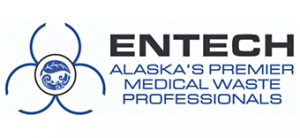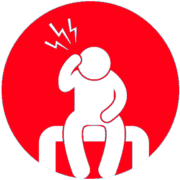The proper management of medical waste can be a complicated process, but an extremely necessary one for any facility generating these regulated materials. Not only can the improper handling and disposal of medical waste expose patients, healthcare providers, the public, and medical waste service providers to hazardous materials, but it can also result in serious legal consequences which are not limited to fines. As a result, you should expect your service provider to offer you the knowledge, tools, and support needed to remain compliant with the numerous federal, state, and local regulations in order to prevent common medical waste management mistakes.
By working with a provider who is both knowledgeable about applicable regulations and committed to their implementation, your practice is better positioned to ensure that wastes are managed in a safe manner which protects public health. In this respect, the proper management of medical wastes and your relationship with your medical waste service provider can be seen as a key component of the Hippocratic Oath to “do no harm.”
Here are five common medical waste management areas to focus on to ensure proper management and compliance within your healthcare facility:
1. Ensure Your Staff Maintains Required Training
According to the Occupational Safety and Health Administration (OSHA), their most frequently issued citations within the healthcare industry (second for all US industry classifications) involves infractions of the Bloodborne Pathogens (BBP) Standard. OSHA’s second most common healthcare citation involves violations of Hazcom requirements. All employees with potential exposure to blood or bodily fluids are required to train on BBP annually per federal OSHA regulation. Similarly, OSHA requires employers to maintain, and update annually, Exposure Control and Fire Prevention Plans along with a specific Hazard Communication Program. OSHA has the ability to issue fines up to $12,600 for each workplace hazard per instance which includes training and safety plan requirements among all other regulations contained in 29 CFR 1910.1030. Learn more about your BBP requirements at www.osha.gov/SLTC/bloodbornepathogens/.
Current U.S. Department of Transportation (DOT) regulations require initial and recurrent training of all employees who perform work functions covered by the Hazardous Materials Regulations (HMR), which includes Regulated Medical Wastes. Any employee whose work directly affects hazardous materials transportation safety, specifically individuals who generate and offer waste for transport or sign waste manifests, is required to complete training per federal law. Failure to meet training requirements can result in fines of $471 per instance, per day. DOT fines related to individual HMR infractions defined in Title 49 of the Code of Federal Regulations (49 CFR) can be up to $78,376. Learn more about your specific responsibilities as a hazardous waste generator along with the regulations applicable to your practice and your staff at www.phmsa.dot.gov.
Entech can provide all of your required OSHA, DOT, and HIPAA training, safety plans, and more to help your practice get in compliance and stay in compliance. Learn more about our Healthcare Compliance Training solutions.
2. Utilize Appropriate Containers for the Collection, Storage, and Transportation of Medical Wastes
Using the correct containers for specific types of medical waste during on-site handling and transportation is crucial, particularly with sharps, as needles and other sharps can puncture or tear through red biohazard liner bags. Sharps must be disposed in appropriate rigid containers before placing those containers inside appropriate biohazard bags or bins. In addition, sharps containers go through a specific approval program with the FDA before they are authorized for use in the market.
All containers utilized for the transportation of medical wastes (sharps and general biomedical wastes) also need to be approved by the Department of Transportation (DOT) and sealed per restrictions on weight prior to transportation. As part of this process, containers are rigorously tested to certain performance standards and marked accordingly per regulation.
While medical waste containers are generally provided by service providers, medical waste packaging and labeling is the responsibility of the facility itself. Packaging includes sharps containers, biohazard containers, plastic bags, and reusable containers. Failure to comply with safe containment is an environmental and community health issue. Consequently, it is important to identify and work with a service provider that maintains both a strong understanding of and commitment to compliance as they work to support your practice’s own efforts in this area.
Contact Entech with any questions you may have on medical waste containment to make sure your practice remains in compliance.
3. Provide the Appropriate Manifest Documentation
All medical waste must be properly accounted for when it leaves a your facility and this is accomplished through the use of shipping manifests. These manifests, mandated by federal law and outlined in CFR, document offered wastes and tracks these materials as they are transported to an appropriate off-site waste management facility. Manifests must also follow certain requirements in terms of format and execution as defined by federal law. In addition, federal DOT regulations require that staff signing a manifest for a waste pickup have training in DOT protocols among other requirements.
Contact Entech with any questions you may have on required waste manifests to make sure your practice remains in compliance.
4. Utilize Conforming Signage
Regulated medical waste requires special handling, disposal, and storage. Both OSHA and DOT have requirements that must be met in order to properly store and dispose of waste while displaying signage that properly communicates hazards. Failure to post conforming signage about restricted areas, medical waste containers, or maintain infection control plans at your facility can put staff, patients, and other individuals who come into contact with generated wastes at risk.
Contact Entech with any questions you may have on required signage to make sure your practice remains in compliance.
5. Work with Committed Medical Waste Management Partners
Many of the most common medical waste management mistakes can be resolved by working with a qualified medical waste management company that fully understands the process and follows required and best practices. There are no shortcuts in this process and responsible companies will do whatever is necessary to ensure that your waste management activities comply with all appropriate regulations while reducing your liabilities. Essentially, this regulatory management is one of the largest cost drivers of medical waste service activity and should be an important expectation you have of your chosen provider. After all, this is one of the primary elements of the service which you are paying for.
Contact Entech with any questions you may have on medical waste management activities to make sure your practice remains in compliance.


